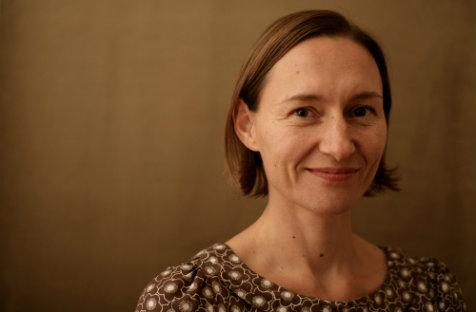As Alison Moore’s 2012 Man Booker-shortlisted The Lighthouse opens, protagonist Futh stands aboard a ferry bound for mainland Europe. Present-day Futh is headed to Germany for a week-long walking trip, but by the end of the first page, he is contemplating a North Sea passage with his abusive alcoholic father 30 years before. This is the first of many flashbacks in the novel; the narrative rarely stays in the present for more than a few pages, but rather jumps back and forth between Futh’s lonely childhood, his turbulent teenage years and early adulthood, and his more recent middle age. At first, this non-linear structure, as well as occasional chapters from the point of view of a second protagonist, Ester, is jarring and somewhat confusing. However, the flashbacks arise naturally within the narrative and make sense in the context of Futh’s present-day experiences.
Not surprising given that it’s set in a landlocked country, the present-day action of the novel does not feature any lighthouses. Instead, the novel’s title signifies two things: first, an actual lighthouse in Cornwall, where an adolescent Futh spent a day with his parents immediately before his mother left them and never returned. This memory arises three times in the novel, and its significance becomes more obvious with each revisiting. Looking at the lighthouse, Futh contemplates the shipwrecks that happened in spite of the lighthouse and ‘wonder[s]…how there could be this constant warning of danger, the taking of all these precautions, and yet still there was all this wreckage’. This could also be a metaphor for Futh’s life – despite being an anxious, cautious type, Futh’s life ends up in ruins, and the adults in his life do little to protect him.
Second, the novel’s title represents an object that is something of a talisman for adult Futh: a vintage silver lighthouse-shaped case in which a vial of his mum’s perfume was stored. Futh is somewhat obsessed with the lighthouse, which he carries with him everywhere, and with the scent it once contained – the smell of violets (which Futh’s now-ex-wife claims is no smell at all). In addition to the silver lighthouse itself, this fragrance and other smells are used cleverly throughout the novel to represent Futh’s fixation on his absent mother and to trigger the recollection of various memories. As an adult, Futh is in the olfactory business; he makes his living from ‘the manufacture of synthetic smells’.
Futh’s obsession with his mother proves to be a point of contention in his adult life – his wife, who shares his mother’s name, constantly reminds Futh that she is ‘not [his] mother’, although she ultimately leaves Futh for seemingly the same reasons that made Futh’s mother leave her husband. In the wake of the break-up of his marriage, Futh goes on his walking trip to Germany, which does not go as planned.
It is difficult to explain the intricate, interwoven plots and structure of The Lighthouse, other than to say that it all ultimately works extremely well. The book is as close to novella length as novel length, and Moore is able to accomplish a great deal in a mere 183 pages. She creates not one but two exceptionally well-realised protagonists: Futh, a melancholic wallflower who slept through much of his own wedding reception, and Ester, a battered wife dealing with her fading looks and desirability, whose story parallels and echoes Futh’s in sometimes uncanny ways. These characters barely interact, but their brief encounter has enormous repercussions. The slow, seemingly overdetailed action of the parallel present-day plotlines simultaneously creates a mood of loneliness and a sense of foreboding, and the novel comes to a disturbing but strangely poetic climax.
It is no wonder that this melancholy, quiet, and often creepy book wound up on the 2012 Man Booker Prize shortlist; it is without question one of the best novels I have read in the past year.
Rating: 4 stars out of 5
The Lighthouse
By Alison Moore
Paperback, 183pp, RRP $19.99
ISBN 978 0 85786 995 1
Cannongate/Allen & Unwin





